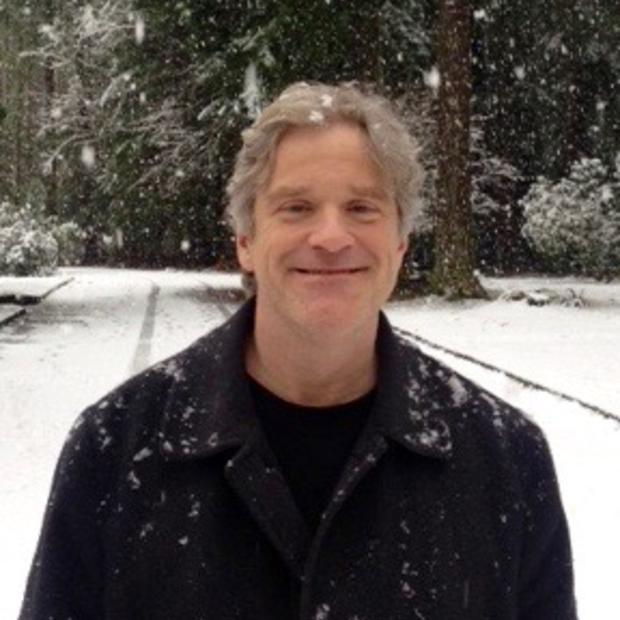Tim Eyman, not unlike Lucifer or a psychology prof, understands that base human nature animates behavior. Civic virtue is a political adhesive, but certain annoyances always trigger our inner-Hobbes (or, more to the point, our inner-Eyman.) Take, for example, red-light cameras. As the Everett Herald's Scott North writes, traffic cams have become political arsenic, a toxin that kills suddenly or gradually over time.
"Not only did voters in three Washington communities line up solidly against the automated traffic-enforcement devices on Tuesday, some politicians who were considered big fans of cameras found themselves trailing at the polls," North writes. North follows with an Eyman quote that is, well, quintessential Eyman. "I think it is hugely significant on election night that we didn't just win at the ballot box on the issue. We scored some scalps." Scored some scalps?
Eyman is a student of all that pesters, and traffic cams are a unifying vehicle to galvanize the masses. Do we become annoyed because these cams are like inanimate police? (We know not to run a red if there is an officer in sight.) It's our word against a machine that flashes like a strobe light, as if God were firing a lightning bolt. While a statewide traffic-cam initiative would pass easily, Eyman is getting too much joy and lucre from his current MO. Regarding a statewide ballot measure, Eyman tells North (in a passage that will gladden any mother's heart) "it is frankly not as fun as picking these guys off, one city at a time."
Does Amazon know something that we don't? In a curious about-face, Amazon has decided to support a bill in the U.S. Senate that forces online vendors to collect sales taxes. As the Seattle Times' Kyung M. Song writes, "It was the Seattle-based Internet retailer's clearest endorsement of the federal legislation, and a stark contrast to its sometimes-combative opposition to attempts by individual states to require the same thing." This time eBay, with a focus on small vendors, is leading the opposition to the Marketplace Fairness Act. Nevertheless, as Song notes, "Retailers with less than $500,000 in annual sales would be exempt."
The bill would be a boon to sales-tax states. Song writes, "Passage would enable states to capture an estimated $23 billion a year in uncollected taxes. For Washington, the windfall could total $483 million during the 2013-2015 budget cycle, according to the state Department of Revenue." What is Amazon's game plan? It could be surrendering to the inevitable, embracing the uniformity of a federal approach and tiring of all the state-by-state wrangling. Or maybe, unlike Tim Eyman, Amazon doesn't get satisfaction picking these guys off one at a time.
Publicola writer Lummy Lin provides a good summary of Rob McKenna's gubernatorial-kickoff breakfast. McKenna's political tag line is "New Direction" which, even if it sounds something like a substance-abuse program, contours a range of issues. "The plan champions the trademark conservative approach of small government through reducing taxes and regulations to stimulate private sector job growth," Lin writes. "There’s a twist, though. Just as he did in June. McKenna is advocating Democratic President Barack Obama-style education reform that touts charter schools as a magic bullet (which McKenna likened to “that boulder in [the video game] Angry Birds that’s tipping, tipping, and….needs a governor to sign and enact [education reform] legislation to push over.')"
McKenna leads Jay Inslee in the polls and, unlike Inslee, can talk the higher-education talk. The biggest obstacle for winning a blue state is throwing around conservative bromides. "The takeaway from the 30-minute speech is that McKenna believes government should run more like a business," Lin writes. That sounds like a Republican bromide, especially in the Occupy era. It's also the theme that helped elect Democrat Booth Gardner governor in 1984.
It's apostasy to suggest that University of Washington regents, along with the UW's new president, Michael Young, could learn a thing or two from California. Still, we live in interesting times. As Larry Gordon of the Los Angeles Times writes, University of California President Mark G. Yudof is scrambling to prevent a tuition hike. "Yudof's statement was a tactical retreat from a controversial plan floated in September in which UC said tuition could rise 8% to 16% annually over the next four years if state funding did not increase enough to offset increasing costs," Gordon writes. "Reaction from students and families in September was vociferously negative, and UC regents shelved the idea, at least for now."
Just like Washington, state lawmakers have slashed and drained the California system. "UC this year received $2.37 billion in state general revenue funds, down $650 million from last year, and the university may also face midyear cuts if the state budget situation does not improve," Gordon writes. Hard times that shouldn't be shouldered by struggling undergrads.
Lastly, it began when Russell Investments abandoned Tacoma for Seattle in 2010. Now, to add insult to cultural injury, yet another local institution will hightail it to the big city. As Rosemary Ponnekanti of the Tacoma News Tribune writes, "The prestigious regional art awards the Neddys are moving from Tacoma to Seattle." Et tu, Neddys?
Link Summary
Everett Herald, "Are traffic cameras poison for politicians?"
Seattle Times, "Amazon supports Senate's online sales-tax plan"
Publicola, "Rob McKenna Pushes Ed Funding and Charter Schools"
Los Angeles Times, "UC leader to keep tuition steady next year"
Tacoma News Tribune, "Another loss to Seattle: Neddys art awards are leaving Tacoma"


